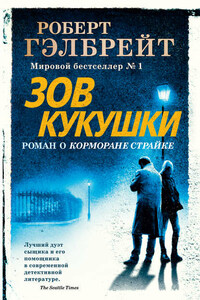CHAPTER I
With The American Army in France
IT was a bright winter day near the middle of November, the ground hard with frost and light flurries of snow in the air.
Over the sloping French countryside thousands of brown tents arose like innumerable, giant anthills, while curling above certain portions of the camp were long columns of smoke. American soldiers were walking about in a leisurely fashion, or standing in groups talking. Some of them were engaged in cleaning their guns or other military accoutrements, a number were investigating their kits.
Near one of the camp fires a private was singing to the accompaniment of a guitar and a banjo played by two other soldiers, with a fairly large crowd surrounding them. "Johnny get your gun, we've the Hun on the run."
Over the entire American camp there was an atmosphere of relaxation, of cheerfulness, of duty accomplished. The eleventh of November having passed, with the armistice signed, the American soldiers in France were now awaiting orders either to return home to the United States or else to march toward the Rhine. In this particular neighborhood of Château-Thierry no word had yet been received as to what units were to form a part of the American Army of Occupation, only the information that the units were to be chosen with regard to their military accomplishments since their arrival in France.
Therefore the heroes of Château-Thierry and of Belleau Woods, of St. Mihiel and the Argonne Forest were ready to accept whatever fate sent, "Home," or "The Watch on the Rhine."
Finally ending his song the singer stood up; he was wearing the uniform of the United States Marines.
"I say don't stop singing, Navara. What's a fellow to do these days without your music, when we have no longer the noise of the cannon or the shrieking of guns overhead as a substitute?" one of the group of soldiers exclaimed. "The quiet has come so suddenly it is almost as hard to grow accustomed to it, as it once was to the infernal racket."
"Oh, Navara is expecting visitors, feminine visitors. Some people have all the luck!" Corporal Donald Hackett protested, placing his banjo in its case and also rising. He spoke with a slight southern drawl and was a tall, fair young fellow with brilliant blue eyes, and both his hair and skin burned red by exposure to the outdoors.
"Come along then and be introduced to my friends; a good many of you fellows know them already," Carlo Navara answered. "Mrs. David Clark and six Red Cross nurses are motoring over from the Red Cross hospital. I suppose you have been told that sometime this afternoon half a dozen of our men are to be cited. An officer is coming from headquarters to represent the commander in chief, and present the medals. In a short time we must be ready for inspection."
Moving off together the two men formed an interesting contrast.
Carlo Navara was dark, a little below medium height, with closely cut brown hair, rather extraordinary black eyes and an olive skin.
The young singer, an American of Italian ancestry, had first fought among the snow-clad hills of Italy. Wounded, he had afterwards returned to the United States, where a great career as a singer was opening before him. Then the desire to fight in France had driven him to surrender his art and to serve as a volunteer in the marine corps.
A moment later the two men disappeared within their tents. An automobile with the Red Cross insignia soon after drove up before one of the entrances to the camp where a sentry stood guard.
Stepping out of it first came a woman, youthful of face and form, but whose hair was nearly white, her eyes a deep blue with dark lashes, and her color a bright crimson from her drive through the winter air.
Following her immediately was a young girl, scarcely eighteen years old, who was small and fair with pale blonde hair and surprisingly dark brown eyes. Both the woman and girl were wearing heavy fur coats and small hats fitting close down over their hair.
The older woman was Mrs. David Clark, the wife of the chief surgeon of the Red Cross hospital which was situated a few miles from the present camp. Before her marriage which had taken place only a little more than six months before, she had been Sonya Valesky.
The young girl was her ward, Bianca Zoli.
"I declare, Sonya, I don't see how you always manage to get ahead of the rest of us considering your advanced years," another girl exclaimed, jumping out of the car and slipping on the icy ground until her older friend caught firm hold of her.
"Do be careful, Nona Davis, and don't be humorous until you are more sure of your footing," Sonya Clark replied. "You know when you return to New York I want Captain Martin to find you as well as when you said goodby to him. But have you Dr. Clark's note to the officer of the day? I'll ask the sentry to take it in to him."
During the few moments Mrs. Clark and Nona Davis were talking, four other Red Cross nurses had followed their example and were out of the automobile. They were now walking up and down on the frozen road for warmth and exercise.














